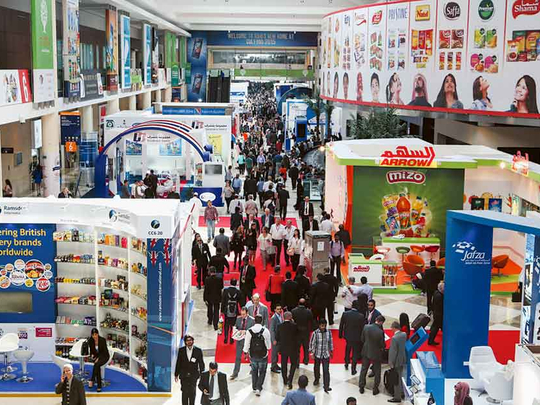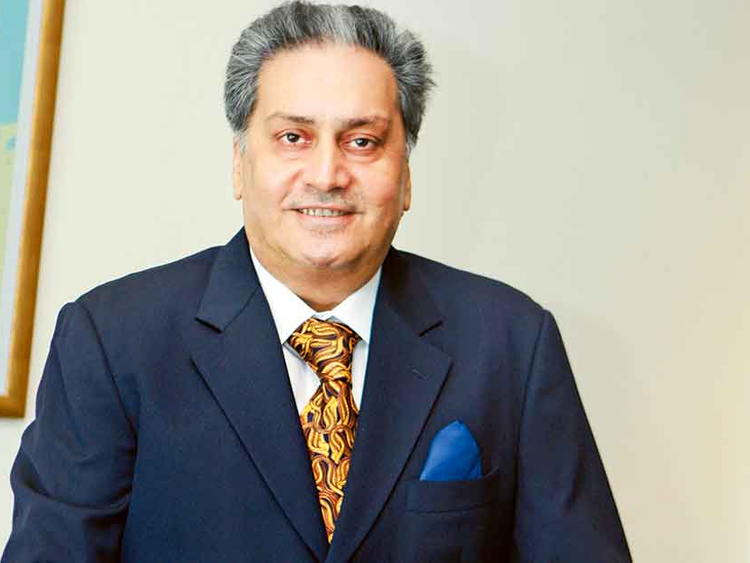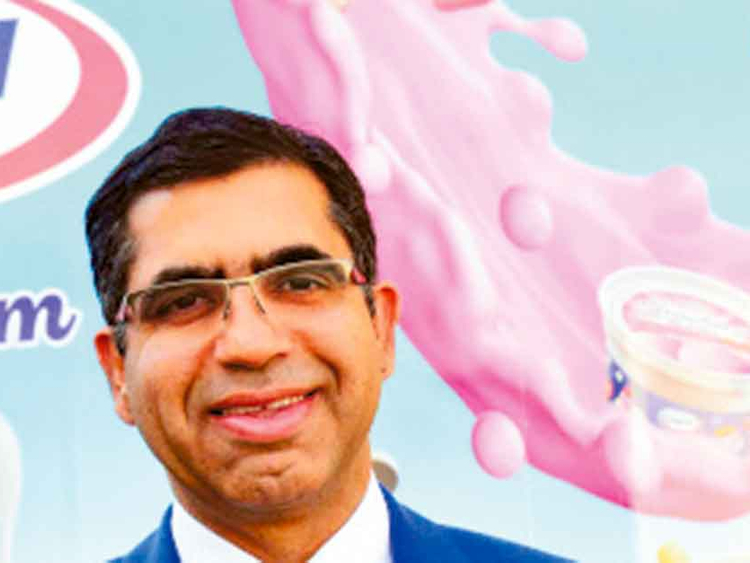
An increasing influx of expatriates, higher disposable incomes and rising health awareness among consumers in the UAE will see the nation’s food and beverage sector grow by 30 per cent over 2015 within the next five years.
Fresh food sales in the country are forecast to increase to 3.6 tonnes in 2019 from about 2.8 million tonnes in 2015, with the retail value of packaged food sales expected to rise to Dh23.1 billion by 2019 from Dh16 billion two years ago.
The figures — a compound annual growth rate of about 10 per cent — were revealed by Hassan Al Hashemi, Vice-President, International Relations, Dubai Chamber, at a Gulfood Breakfast Briefing last year.
The data comes from market researcher Euromonitor, which expects the nation’s food and beverage sector to be Dh82 billion by 2020. This growth is critical as it helps the UAE’s travel and trade sectors to flourish as well, says Mark Napier, Exhibitions Director, Dubai World Trade Centre (DWTC) and Show Director, Gulfood 2017.
The show, which begins today and runs until Thursday, will feature more than 5,000 food exhibitors from 120 countries in its 22nd edition, with over 1,000 new-to-market products making their regional debuts.
“As a world-leading food and beverage exhibition it is paramount that we keep evolving and moving forward,” he tells GN Focus. In keeping with the evolutionary theme, the event has remodelled its format and visitor experience this year. A new segmented layout trains the spotlight on eight of the biggest commodity trading sectors with dedicated halls for beverages, dairy, fats and oils, health and wellness, pulses, grains and cereals, meat and poultry, power brands and world food.
Although the 2017 show takes up over one million square feet, the new format enables visitors to get straight to business in their target sectors, Napier says. “This allows them to use their time more effectively and acquire deeper market insight, while boosting trade potential for exhibitors eager to open up new supply routes.”
New countries, new launches
New to the show this year are visitors from four countries: Azerbaijan, Finland, Somalia and Malta. Other nations are experimenting with new formats to attract buyer attention: Italy, for example, is hosting a food lab with Michelin-star chefs to serve up new and interesting ways of presenting the Mediterranean diet.
Other additions include the Gulfood Virtual Supermarket, an interactive shop window and the Visitors’ Choice competition. But more on that later.
Among the many new products being tested and tasted for the first time are traditional foods packaged and presented in new and appealing ways.
Food and beverages giant Unilever will display The Tea Company, a new concept positioned as a one-stop shop for tea, as well as an all-new Chicken Shawarma Marinade from Knorr, aimed at professional chefs. “Sophisticated consumers are looking for increasingly intense taste and texture sensations, usually in small servings,” says Colin Butler, Managing Director Unilever Food Solutions — Middle East, Pakistan, Sri Lanka. “They no longer want flavours that are diluted but rather pack a small and mighty punch.”
New Zealand dairy firm Fonterra is bringing its latest products including extra-yield cooking cream and extra-stretch mozzarella cheese variants. “Dairy has been around for thousands of years, but it’s a food that is on-trend with what consumers want today globally and in the Middle East,” says Santiago Aon, General Manager Middle East, Fonterra.
Home-grown heroes
Local players, meanwhile, are digging deep to take their place at the top table. Mass-market brand Unikai, for instance, is spending Dh1.5 million to reposition its Royal Treat brand as a premium ice cream and buyers will be able to taste the difference at Gulfood. “We have recently invested Dh1 million in a new lab and a R&D facility to foster innovation, produce more efficient product lines and keep up with dynamic consumer demand,” says Neeraj Vohra, CEO of Unikai. “We plan to invest between Dh60 million and Dh100 million to upgrade our infrastructure over the next three years.” The company uses Gulfood to grow its network and reach new markets. “At Gulfood 2016, we signed deals with distributors to expand our presence in Qatar and Bahrain.”
Kamal Vachani, Group Director at Al Maya Group, a constant at Gulfood in past years, says the supermarket chain sources on-trend consumer products at the show. “Dubai is the gateway to the wider Middle East, South East Asia and Africa and Gulfood provides an avenue to brands to get showcased to a wider audience,” he tells GN Focus in an email.
Napier agrees. “Dubai is the world’s biggest re-exporter of rice, coffee and tea, but Gulfood also opens the door to international food industry professionals to learn about developments such as Dubai Wholesale City that aim to leverage the emirate’s strategic potential as a re-export hub for the global food industry.”
Doing its bit
Gulfood 2017 will announce details of how it is contributing to the UAE Food Bank, an initiative decreed by His Highness Shaikh Mohammad Bin Rashid Al Maktoum, Vice-President and Prime Minister of the UAE and Ruler of Dubai, to reduce food waste and feed the needy in the emirates and overseas. The food bank, announced in line with 2017 being the Year of Giving in the UAE, will work with authorities and charities to collect excess food from hotels, supermarkets, restaurants and farms.
Also at the show
The Gulfood Virtual Supermarket is a new concept, providing an interactive shop window to products and cutting-edge innovations. It will feature three major sourcing categories: innovative products, organic/free-from and halal. Also being held for the first time is a Visitors’ Choice competition, which awards the favourite product or cuisine as voted by Gulfood social media users.
Returning to the show is Emirates Culinary Guild International Salon Culinaire. More than 1,000 of the region’s top professional chefs, cooks and bakers will go stove to stove in competitions judged by experts from the World Association of Chefs’ Societies.
The Major Buyers Lounge also makes a comeback, providing high-level networking for established players and newcomers looking to connect with multinational food producers in the Middle East at the show.
Halal on-trend
The fourth edition of Halal World Food returns to Gulfood this year with more than 1,000 international specialist Halal food brands and companies.
This major global trading platform generates lucrative investment opportunities for international F&B businesses looking to capitalise on the halal industry that is witnessing significant growth in both Muslim and non-Muslim countries across the world.
“The global halal food industry is on the rise,” says Mark Napier, Exhibitions Director, Gulfood 2017.
“A recent report by the Global Islamic Economy predicted a 10.8 per cent annual growth rate until 2019, which will create an international industry worth $3.7 trillion (Dh13.6 trillion),” he says. Meanwhile, Alpen Capital’s GCC Food Industry report suggests halal food imports into the GCC are expected to almost double from $25.8 billion in 2010 to $53.1 billion by 2020, registering a 7.5 per cent CAGR.
Reflecting the UAE’s strategic position as an international centre for halal food trading, Halal World Food showcases the full spectrum of products including vegan and vegetarian food, meat and poultry, canned goods, energy drinks, gourmet and more.














